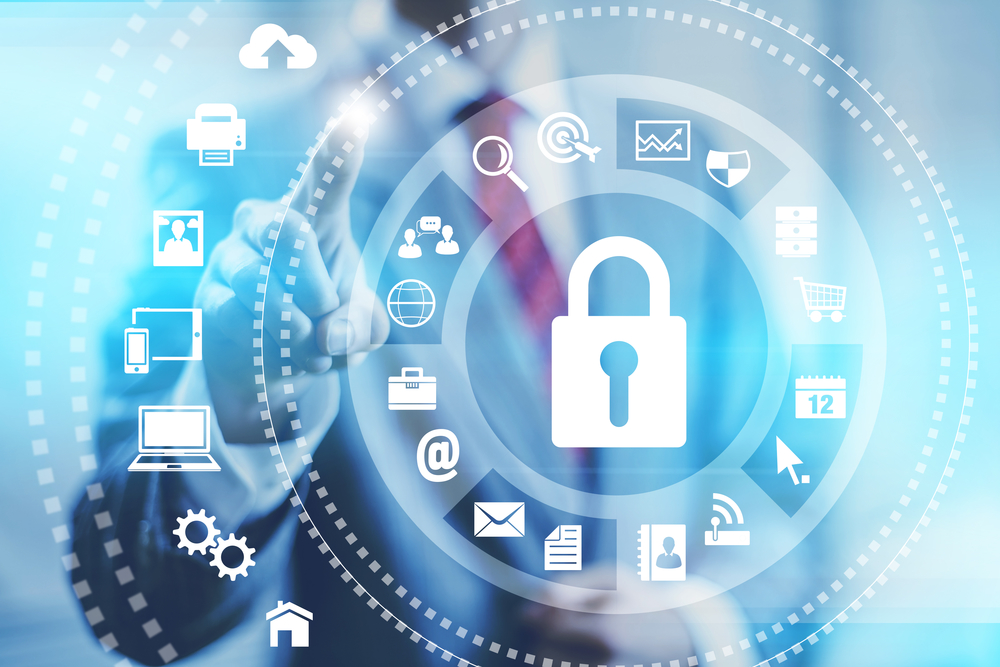
How failure to identify AI risks can lead to unexpected legal liability [Q&A]
Use of generative AI is becoming more common, but this comes with a multitude of inherent risks, security and data privacy being the most immediate. Managing these risks may seem daunting, however, there is a path to navigate through them, but first you have to identify what they are.
We talked to Robert W. Taylor, Of Counsel with Carstens, Allen & Gourley, LLP to discuss how a failure to identify all the relevant risks can leave businesses open to to unexpected legal liabilities.

Yubico helps more enterprises go passwordless
Hardware authentication company Yubico is announcing the expanded availability of YubiKey as a Service to all countries in the European Union (EU). This allows organizations to be more agile and flexible in their adoption of phishing-resistant YubiKeys.
It's also announced the greater availability of YubiEnterprise Delivery across 117 new locations around the world. This makes it available 199 locations (175 countries and 24 territories) and more than doubles existing delivery coverage of YubiKeys to both office and remote users in a fast and turnkey way.

Threat intelligence is crucial but organizations struggle to use it
While 92 percent of respondents to a new survey say collaboration and information sharing are either 'absolutely crucial' or 'very important' in the fight against cyber threats, the results tell a different story when it comes to the adoption of this practice.
The study from Cyware, conducted among cybersecurity professionals at the RSA Conference 2025, finds only 13 percent say their current automation between cyber threat intelligence (CTI) and SecOps tools is working well. Nearly 40 percent day they struggle to coordinate data across critical security tools like Threat Intelligence Platforms (TIPs), SIEMs, and vulnerability management platforms.

AI-powered threats highlight the need for a unified approach to SOCs
With new threats such as AI-powered attacks, enterprises must be fully prepared and confident about protecting themselves and their customers and build a unified security operations center (SOC) that combines human expertise with AI advancements.
A new report from Splunk looks at the mounting challenges faced by SOCs. It uncovers the pain points that hamper organizations and open their doors to threats -- 46 percent of respondents say they spend more time maintaining tools than defending the organization, while only 11 percent trust AI completely for mission-critical tasks. Furthermore, 66 percent experienced a data breach in the past year, making it the most common security incident.

97 percent of CIOs are deploying or looking at edge AI
New research shows that 97 percent of CIOs have edge AI either already deployed or on their
roadmap, with only three percent reporting no current plans to implement these technologies.
The report from ZEDEDA, based on a survey by Censuswide of over 300 US CIOs, finds 80 percent of CIOs with deployed edge AI solutions use them for customer experience improvements, while nearly as many (77 percent) focus on risk management applications, including predictive maintenance.

Autonomous AI agents aim to streamline enterprise development
The use of AI in software development can save valuable time completing routine tasks. But what if it could autonomously respond to events, implement changes, and submit code through standard pull requests?
This is what Zencoder is doing with the launch today of Autonomous Zen Agents for CI/CD, bringing groundbreaking AI automation directly into the software development infrastructure.

Docker introduces Hardened Images to boost supply chain security
Security of the enterprise software supply chain isn't solved with buzz or branding. It is solved with trust, scale, and seamless integration into real developer workflows.
To meet everyday software supply chain challenges Docker is launching Docker Hardened Images (DHI), a curated catalog of security-hardened, enterprise-grade container images.

Starburst platform updates boost enterprise AI initiatives
Updates to the Starburst data platform for apps and AI are designed to accelerate enterprise AI initiatives and support the transition to a future-ready data architecture built on a data lakehouse.
At the heart of these changes are Starburst AI Workflows, a purpose-built suite of capabilities that speed AI experimentation to production for enterprises. AI Workflows provides a link between vector-native search, metadata-driven context, and robust governance, all on an open data lakehouse architecture.

Why threat hunting is more vital than ever [Q&A]
The threat landscape is rapidly changing and businesses can no longer simply wait for an attack to be caught by traditional tools or decide how to respond after it occurs.
Mike Mitchell, VP of threat intelligence at Intel 471, has experienced the evolution of threat hunting first-hand as he's been in the industry for decades. We spoke to him to learn more.

How social media is changing workplace communication
Time was when office colleagues would exchange information, ideas and gossip around the water cooler or coffee machine.
That's changing because of technology though, new research reveals that platforms like TikTok and Instagram are directly influencing how 83 percent of people communicate professionally, fueling conflict and misunderstanding among an increasingly intergenerational workforce.

Why subsea cables are essential to business resilience [Q&A]
While businesses focus on cloud services and digital transformation, they often don't realize that their operations depend on the massive cable networks laid underwater.
Recent incidents have highlighted how critical these subsea cables are for business continuity, so do businesses need to rethink their approach to infrastructure as a result? We spoke to Sharat Sinha, director and CEO of Airtel Business to find out.

International fraudsters target US government programs
International bad actors -- like fraudsters from Russia and China -- are driving one in eight fraud attempts in the US, seeking everything from access to government services to loans, according to a new report.
During the pandemic, government agencies were flooded with fraudulent applications that went undetected by outdated methods. This study from Socure shows AI-powered technologies are enabling fraudsters to supercharge their efforts, hitting government agencies and commercial entities at once, with relentless speed, and at scale.

Companies take an average of four months to report a ransomware attack
A new study from Comparitech, based on data collected from 2,600 attacks between 2018 and 2023, shows the average time for a US company to report a data breach following a ransomware attack is 4.1 months.
From 2018 to 2023, the average time to report a ransomware breach has increased, rising from 2.1 months in 2018 to just over five months in 2023. Healthcare has the lowest reporting time with 3.7 months, while businesses (4.2 months) and government entities (4.1 months) are similar.

GenAI vulnerable to prompt injection attacks
New research shows that one in 10 prompt injection atempts against GenAI systems manage to bypass basic guardrails. Their non-deterministic nature also means failed attempts can suddenly succeed, even with identical content.
AI security company Pangea ran a Prompt Injection Challenge in March this year. The month-long initiative attracted more than 800 participants from 85 countries who attempted to bypass AI security guardrails across three virtual rooms with increasing levels of difficulty.

Chainguard launches malware-resistant dependencies for Python
The Python programming language has become the foundation of modern AI and machine learning applications. Of course that makes it a prime target for supply chain attacks.
Public registries do minimal vetting of hosted artifacts, and they don't provide assurance that the distributed library matches its source code, exposing enterprises to supply chain attacks. Python libraries are also susceptible to supply chain attacks because many projects include more than just pure Python code -- for example project maintainers often rebundle shared system libraries into their Python libraries to ensure stable behavior.

